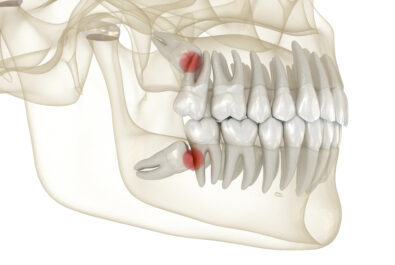If your goal is to preserve your healthy, beautiful teeth (as it should be), then the prospect of tooth extraction might not seem like a good idea. Wouldn’t it be better to restore the tooth then to remove it and have to replace it? In most cases, the answer is yes; however, in some cases, a tooth cannot be saved no matter what restoration you try, and extracting it could be the only option for protecting the rest of your smile.
When to Take Tooth Extraction Seriously
Your tooth is extremely damaged
Tooth damage is common, such as chips and cracks in your tooth’s surface, or a broken-off edge. Typically, such damage can be repaired with a custom dental restoration, like dental bonding or a dental crown. If too much of the tooth’s structure is damaged, though, then a dental restoration may not be able to save it, and your dentist will have to extract and replace the tooth as soon as possible.
Your tooth is too infected
Tooth infection (also known as tooth decay) causes cavities, or small holes, to form in your teeth. If a tooth develops a cavity, it can often be treated with a tooth filling, or in advanced cases, root canal therapy. If you procrastinate long enough, or if the tooth develops internal infection due to structural damage, then even root canal treatment may not be enough to save it. In such cases, tooth extraction can help stop the infection from spreading beyond the tooth and into the surrounding bone and tissues.
Your tooth is impacted
Wisdom teeth – the common name for your third molars – are frequently problematic due to a lack of space on your dental ridges. When they become impacted, or obstructed, by the teeth that are already present, your third molars become a significant threat to your dental health. Extracting wisdom teeth is slightly different than extracting others, mainly because impaction can make the procedure more difficult, and because wisdom teeth do not need to be replaced once they are removed.














